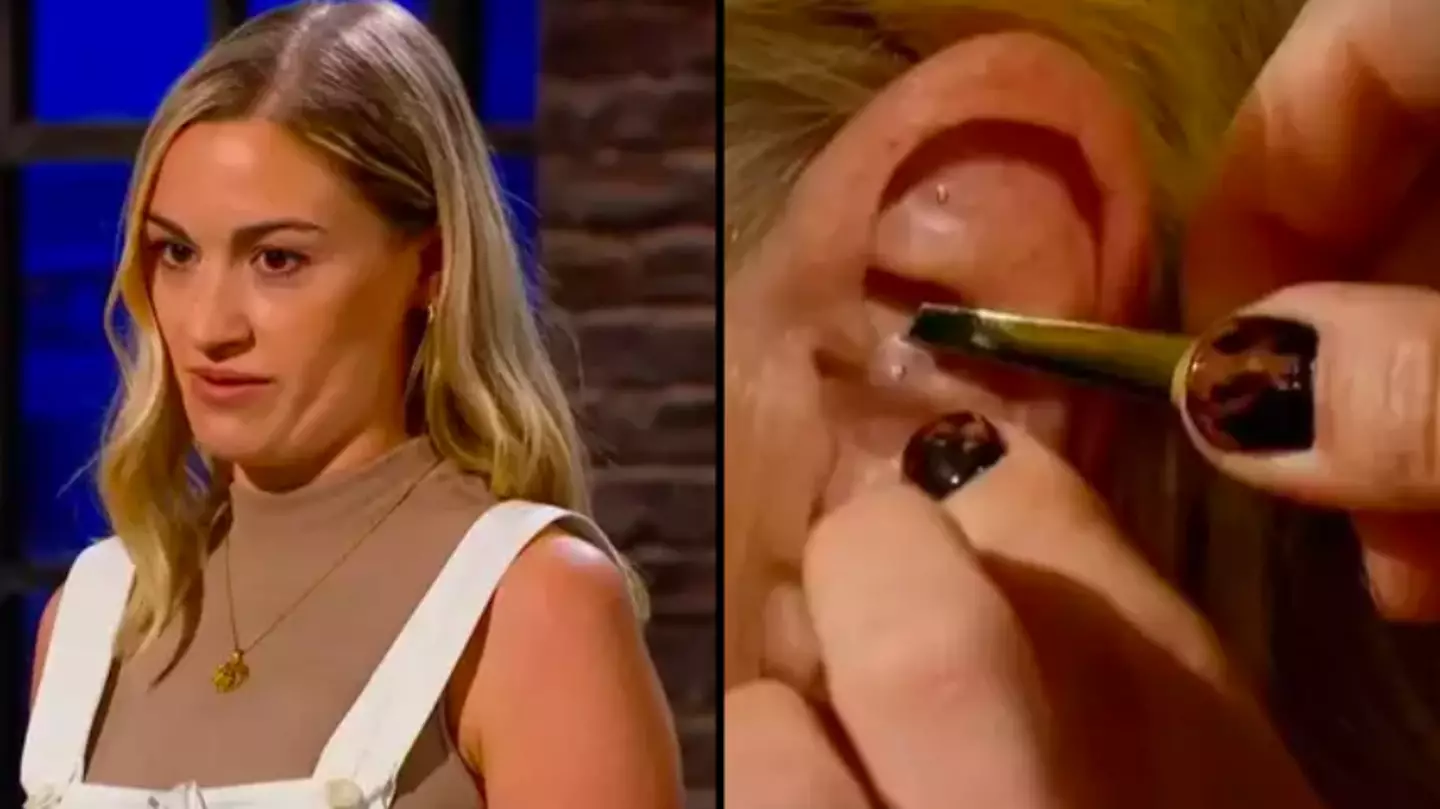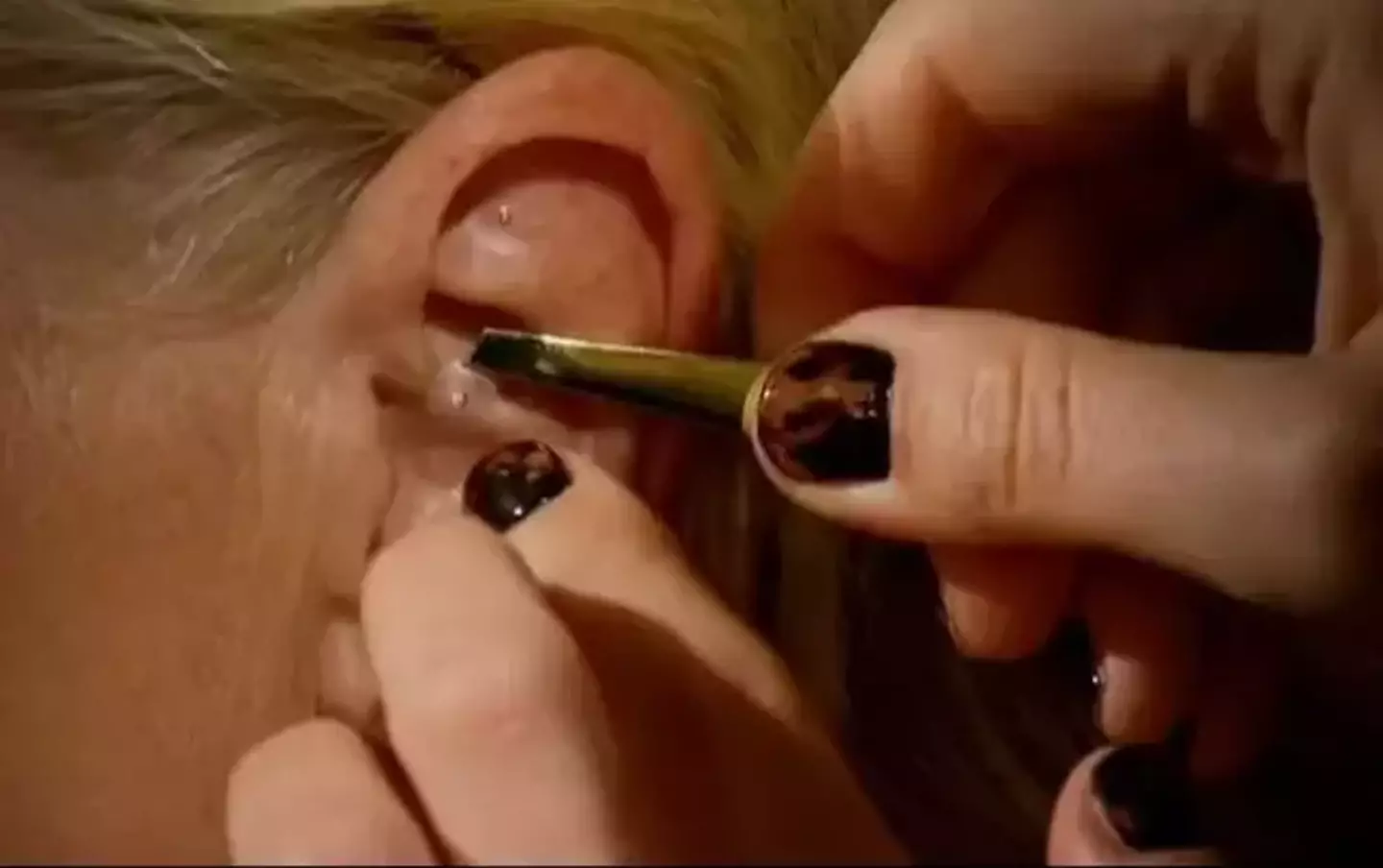
Businesswoman Giselle Boxer's incurable disease has been explained after the BBC pulled her history-making Dragons' Den episode due to safety concerns.
The entrepreneur took the Dragons' Den panel by storm last Thursday (18 January) as she was up against Steven Bartlett, Deborah Meaden, Peter Jones, Sara Davies, Touker Suleyman and guest businessman Gary Neville in the den.
The 31-year-old appeared on the BBC programme, asking for £50,000 for a 10 percent stake in her business Acu Seeds.
Advert
Her company sells needle-free ear acupuncture kits that help combat against anxiety, migraines, hormonal issues, insomnia, and more.
Watch below:
The DIY kits - which can be done from home - cost just £3 to make and are sold for a big mark-up of £30.
While her 18-month-old business impressed the panel, Boxer revealed she has been diagnosed with ME (myalgic encephalomyelitis), sometimes called chronic fatigue syndrome (CFS).
Advert
Though the disease can affect anyone, it is most common in women and usually develops been your mid-20s and mid-40s.
ME is incurable and treatment only aims to relieve symptoms - with the NHS recommending that people try cognitive behavioural therapy (CBT), energy management and pain or sleep medication.
According to the heath service, common symptoms of ME/CFS include:
- Feeling extremely tired all the time - you may find it very hard to do daily activities
- Still feeling tired after resting or sleeping
- Taking a long time to recover after physical activity
- Problems sleeping, such as waking up often during the night
- Problems with thinking, memory and concentration

Advert
Now, from working an office job to having a busy social life, Boxer says she was unable to walk for longer than five minutes - which sparked her 'personal healing journey'.
The businesswoman explained: "Ear seeds are an ancient Chinese medicine tool, based on the principles of acupuncture, but without the needles.
"They are tiny beads, which stick onto the ear, applying pressure onto nerve endings. They send signals to the brain and body to relax the nervous system, release endorphins and naturally relieve pain."
History was made as all six Dragons made an offer - although this was the first time there's been six panelists.
However, the Advertising Standards Authority has received complaints since the episode aired on 18 January, due to the 'unproven claims' which Boxer shared in her pitch.
Advert
UK based charity Action for ME sent an open letter to the chairs of two House of Commons select committees explaining it was 'very concerned' about Boxer's promotion of her product, as it suggested that her ear seeds were 'responsible for her recovery and should therefore be considered an effective treatment'.

A disclaimer on the Acu Seeds website states that the product is not used to diagnose, treat, cure or prevent any disease.
Both medical professionals and 'vulnerable sick people' submitted complaints saying that the product was giving ME sufferers 'false hope', prompting the BBC to remove the Dragons' Den episode from iPlayer.
The broadcaster said that 'products being featured on the programme should not be seen as an endorsement of them', but that it was taking concerns raised by campaign groups seriously.
Advert
A BBC spokesperson told LADbible: "We’re taking the concerns raised seriously, so we are reviewing the episode and therefore it’s currently not available on iPlayer."
Though Boxer said that she 'never said the ear seeds are a cure' and that her recovery was aided by several different methods.
Topics: BBC, Dragons Den, TV and Film, Health